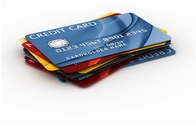Advertisement
FDIC offers new consumer protections for credit cards and mortgages

New federal consumer protections for credit cards and mortgages, including prohibitions against abusive lending practices and requirements for clearer, more timely disclosures, will help people avoid surprises. The Summer 2009 issue of FDIC Consumer News from the Federal Deposit Insurance Corporation (FDIC) features key changes in the rules and what they mean for the public. The protections for credit cards are the result of a new law passed in May that is intended to help shield consumers from abusive fees, penalties, interest rate increases and other unwarranted changes in account terms. Most of the provisions start next year, but some took effect Aug. 20, 2009, including a requirement that card issuers must generally provide a 45-day advance notice of a rate increase or other significant changes in account terms, up from 15 days. The expanded notice period should give consumers more time to react to rate increases or other adverse account changes.
As for mortgages, the new rules feature prohibitions by the Federal Reserve Board against a variety of unfair or deceptive lending practices involving loans made on or after Oct. 1, 2009. Some of the Fed's rules apply to all home mortgages except for home equity lines of credit, and they include prohibitions against inaccurate appraisals (to prevent a consumer from overpaying for a home or borrowing too much) and the unfair handling of loan payments (to avoid unnecessary fees). Other parts of the Fed's rules protect subprime borrowers obtaining high-cost mortgages. More broadly, there are new requirements from the Fed and the U.S. Department of Housing and Urban Development (HUD) for early disclosures of mortgage terms and costs.
Also in this issue of the FDIC's quarterly newsletter for consumers are tips on making the most of bank rewards programs, such as credit cards that enable users to gradually accumulate cash rebates or "points" good for free travel or merchandise, and checking accounts that offer cash or other prizes for frequently using a debit card. The publication says that these programs can be great deals for consumers, but the key is to be on guard against potential pitfalls that include allowing the rewards to overshadow the more important features of an account when comparison shopping, and overspending (in pursuit of the free benefits) that can result in interest charges and unmanageable debt.
The newsletter also notes the availability of a new FDIC brochure and video to help consumers understand their deposit insurance coverage, including how to have far more than $250,000 protected at the same bank.
The latest FDIC Consumer News can be read or printed by clicking here.
For more information, visit www.fdic.gov.
About the author





